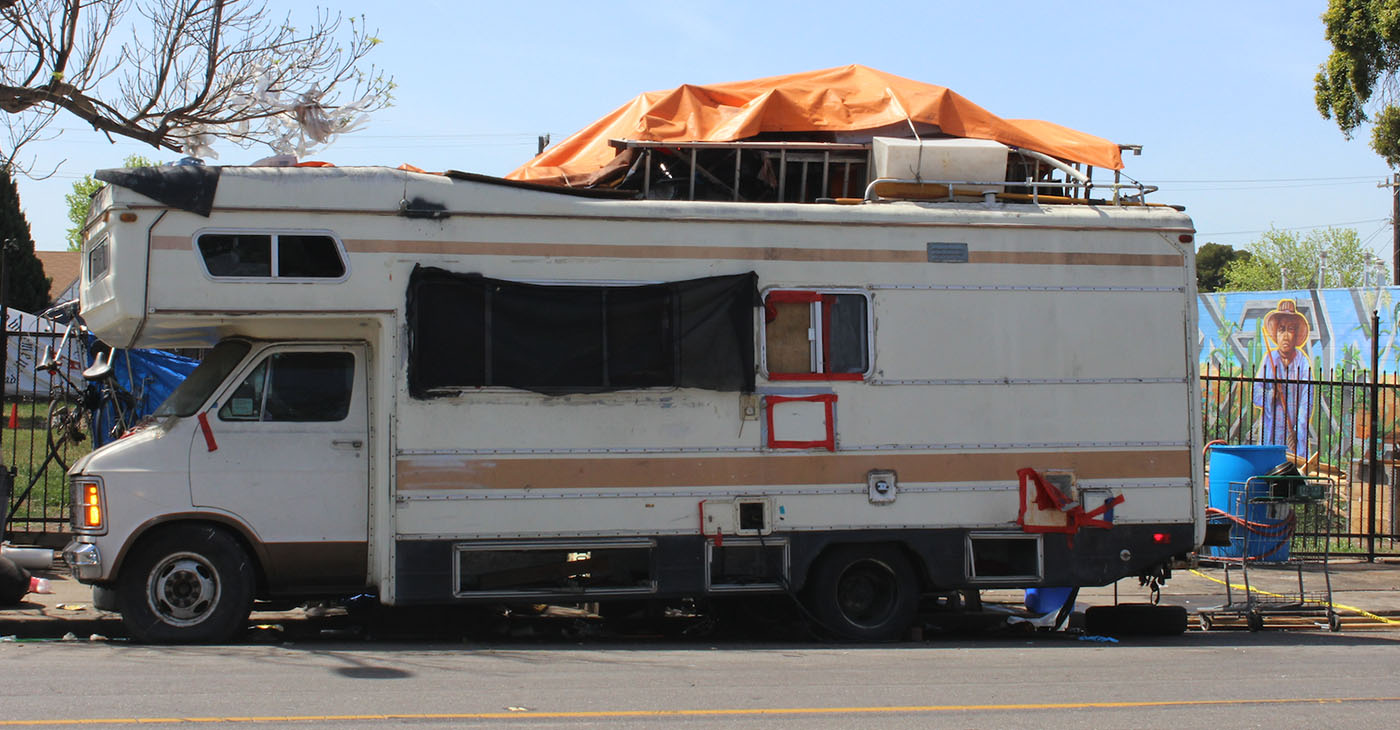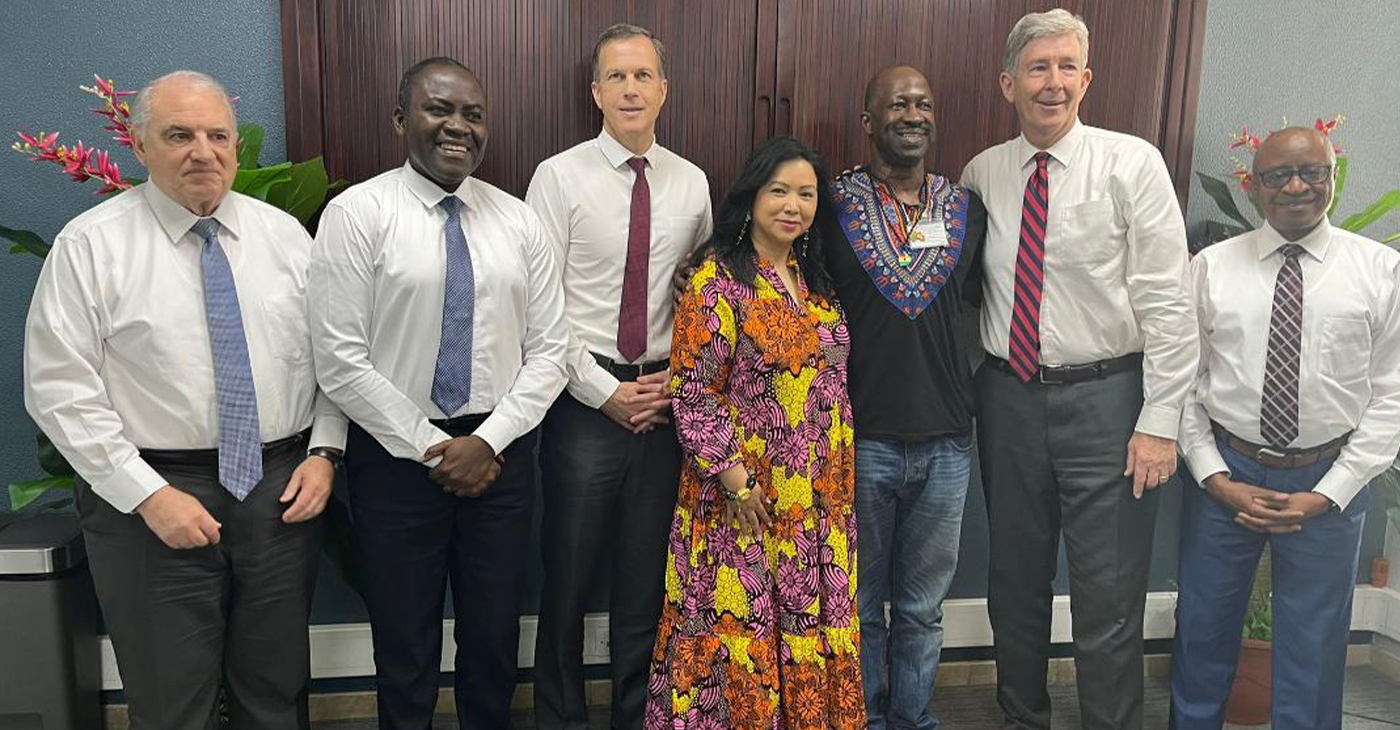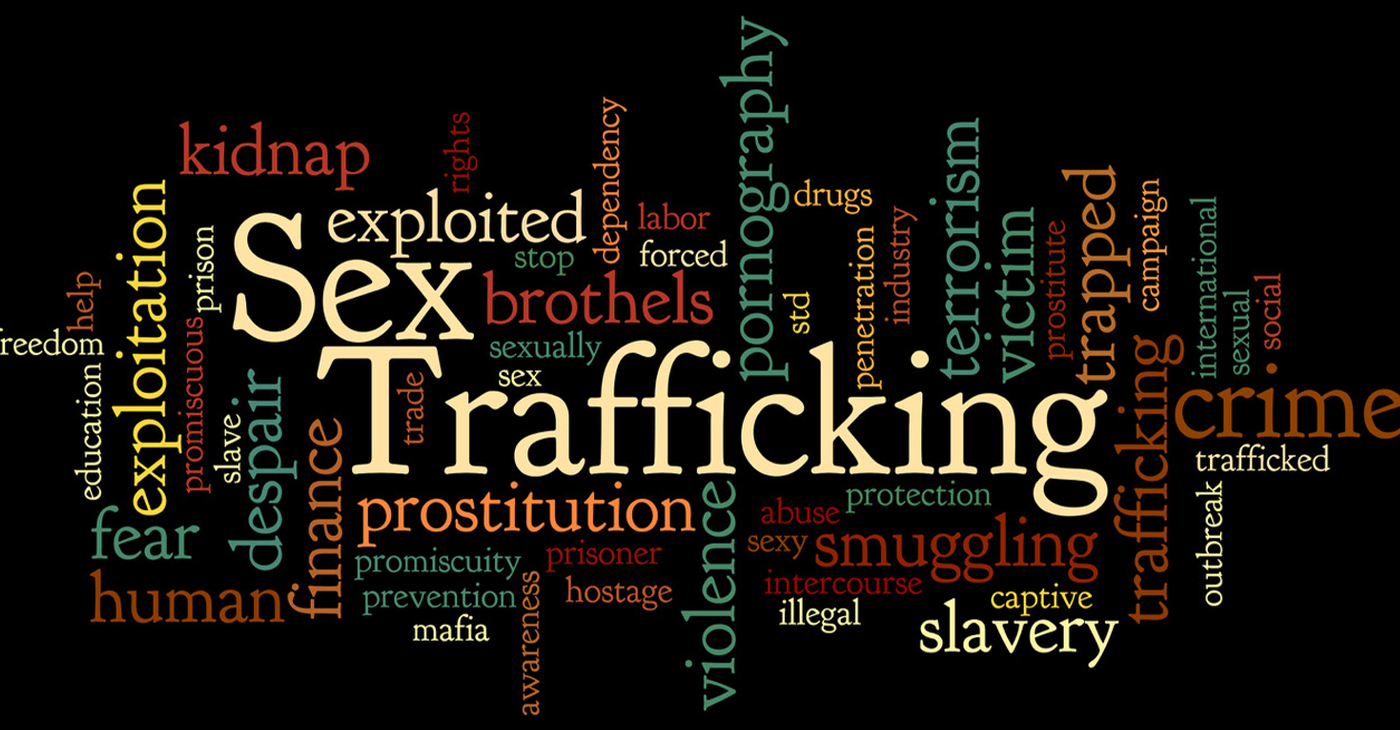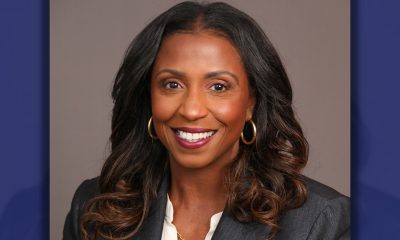Activism
Oakland Group Seeks to Aid Pregnant Residents After Encampment Closure
According to residents and advocates present during the closure of the encampment on April 7, city public works staff and Oakland Police Department officers arrived around 9 a.m., asked residents to leave, and did not offer alternative shelter options. OPD confirmed one officer and two public service technicians were present. In the days before the closure, about 20 residents had lived in the area, mostly in RVs and trailers. The city posted pink signs informing residents of the closure several days before it occurred. While most residents left the encampment, a few remained.

By Zack Haber
A recent closure of a homeless encampment near the intersection of MacArthur Boulevard and 106th Avenue has prompted Homies Empowerment, an East Oakland-based grassroots organization, to call attention to and organize for improving the living conditions of two displaced pregnant women that lived in the encampment.
“We’re looking for a house to rent for them now,” said Rev. Harry Louis Williams II, an activist, author, and hip-hop artist who works as a Care Manager with Homies Empowerment. “Our long-term goal for these women is to get them into an affordable place to live. We don’t want their children to be like baby Jesus in the manger.”
After the closure, Homies Empowerment put the two women up in a hotel room. They want help from the community to house them and are encouraging those who have the means to offer aid to contact the organization.
“Sometimes people say things are bad, and they wish they could do something,” said Williams. “Well, this is a way to do something. This is urgent and we’re not sitting around and waiting for a grant.”
According to residents and advocates present during the closure of the encampment on April 7, city public works staff and Oakland Police Department officers arrived around 9 a.m., asked residents to leave, and did not offer alternative shelter options. OPD confirmed one officer and two public service technicians were present. In the days before the closure, about 20 residents had lived in the area, mostly in RVs and trailers. The city posted pink signs informing residents of the closure several days before it occurred. While most residents left the encampment, a few remained.
Two of those who remained were Teela Hardy and Tanya Andrade. Hardy had been working as a receptionist for a law firm but became homeless after she was laid off. Andrade said she was let go from her service industry job soon after she became pregnant. While she says she technically has access to her former home, it’s uninhabitable.
“I can’t stand my house because it’s full of mold,” said Andrade. “Living there is unsafe because I’m pregnant, and I have asthma.”
Both Hardy and Andrade are about seven months pregnant and had lived in RVs that no longer run but still provided them with shelter. In the days leading up to the closure, it was difficult to move their inoperable RVs and they did not expect the city to follow through with the eviction.
“They gave us a warning,” said Hardy. “But they’ve given us warnings before and not gone through with their word.”
According to Hardy, the City of Oakland had posted signs three separate times this year telling residents they planned to close the encampment on specific dates, but those dates came and passed without any closure enforcement. The Oakland Post emailed Oakland’s director of communications multiple times over three days seeking comments on this story. But the city ultimately did not provide comments before this story’s deadline.
Hardy and Andrade were able to keep their RVs after friends helped tow them to another location, but the women said they lost other possessions during the closure. For Hardy, the most important thing she lost was her car she had been using to do odd jobs and run errands, including getting to doctor’s appointments. According to Hardy, it was impounded because, although she had been trying to get it registered, she hadn’t yet been able to do so.
“It’s just hard,” Hardy said. “They didn’t give me a bus pass or anything, and I know I’m not going to be able to do the things I need to do in the amount of time I need to do them now that I don’t have a car.”
According to Williams of Homies Empowerment, the organization became aware of the closure because they have recently started renting land from the city that sits at 10451 MacArthur Blvd., which is next to where the encampment had been. Hardy said the organization had allowed her to use the land for her dogs to play and that she and Andrade, in turn, had helped to clean up the parcel. Homies Empowerment plans to use the land to set up a small community farm.
A statement on Homies Empowerment’s website says the organization “works alongside our community towards a world absent of whiteness, capitalism, and heteropatriarchy.” The organization started about 12 years ago to help quell gang violence and also address the city’s gang injunctions, which Homies Empowerment saw as harmful. They started a program called Loaves and Fishes during the pandemic, which is still in operation, that feeds East Oakland residents in need of food, including people experiencing homelessness. Williams says the organization offers “solidarity not charity.”
“We shared with the people in the encampment,” Williams said. “They became family. They were welcomed to eat with us.” The encampment closure “shocked and dismayed” members of Homies Empowerment and left them “disheartened.”
Hardy and Andrade said they suspected the city enforced the closure due to the encampment becoming messy. They also said the city provided no toilets, rarely offered trash pickup services, and that sometimes housed private citizens and businesses would dump trash in their encampment instead of disposing of their trash properly.
Williams feels the city is doing “all kinds of things to displace people,” while “people just want to live.” While the city slowed down closures of homeless encampments immediately following the initial COVID-19 outbreak in 2020, by 2021 encampment closures returned with over four occurring per month between January and August of that year. In 2022, several closures have been occurring per week.
Recently, Council Member Noel Gallo proposed an ordinance to the city’s public works committee that would explicitly ban RVs and trailers from streets that are 40 feet wide or narrower. The committee is scheduled to consider the ordinance on May 24. If the ordinance is put to vote and approved by the City Council as it is currently written, it would ban people from living in RVs on about 79% of Oakland’s streets.
“I love Oakland,” said Williams. “But I think Oakland could do more to show loving care to people who are experiencing these problems. If the leadership of the city could come work with us, we could avoid homelessness.”
Homies Empowerment currently sees Oakland’s community as the best avenue to help Hardy and Andrade.
“I am hopeful,” said Williams. “There’s a lot of fire in Oakland’s belly from just regular working people who are saying we want to feed and house people. I think enough people just need to come together and change will come.”
Activism
S.F. Black Leaders Rally to Protest, Discuss ‘Epidemic’ of Racial Slurs Against Black Students in SF Public School System
Parents at the meeting spoke of their children as no longer feeling safe in school because of bullying and discrimination. Parents also said that reported incidents such as racial slurs and intimidation are not dealt with to their satisfaction and feel ignored.

By Carla Thomas
San Francisco’s Third Baptist Church hosted a rally and meeting Sunday to discuss hatred toward African American students of the San Francisco Unified School District (SFUSD).
Rev. Amos C. Brown, president of the San Francisco NAACP and pastor of Third Baptist Church, along with leadership from local civil rights groups, the city’s faith-based community and Black community leadership convened at the church.
“There has been an epidemic of racial slurs and mistreatment of Black children in our public schools in the city,” said Brown. “This will not be tolerated.”
According to civil rights advocate Mattie Scott, students from elementary to high school have reported an extraordinary amount of racial slurs directed at them.
“There is a surge of overt racism in the schools, and our children should not be subjected to this,” said Scott. “Students are in school to learn, develop, and grow, not be hated on,” said Scott. “The parents of the children feel they have not received the support necessary to protect their children.”
Attendees were briefed last Friday in a meeting with SFUSD Superintendent Dr. Matt Wayne.
SFUSD states that their policies protect children and they are not at liberty to publicly discuss the issues to protect the children’s privacy.
Parents at the meeting spoke of their children as no longer feeling safe in school because of bullying and discrimination. Parents also said that reported incidents such as racial slurs and intimidation are not dealt with to their satisfaction and feel ignored.
Some parents said they have removed their students from school while other parents and community leaders called on the removal of the SFUSD superintendent, the firing of certain school principals and the need for more supportive school board members.
Community advocates discussed boycotting the schools and creating Freedom Schools led by Black leaders and educators, reassuring parents that their child’s wellbeing and education are the highest priority and youth are not to be disrupted by racism or policies that don’t support them.
Virginia Marshall, chair of the San Francisco NAACP’s education committee, offered encouragement to the parents and students in attendance while also announcing an upcoming May 14 school board meeting to demand accountability over their mistreatment.
“I’m urging anyone that cares about our students to pack the May 14 school board meeting,” said Marshall.
This resource was supported in whole or in part by funding provided by the State of California, administered by the California State Library via California Black Media as part of the Stop the Hate Program. The program is supported by partnership with California Department of Social Services and the California Commission on Asian and Pacific Islander American Affairs as part of the Stop the Hate program. To report a hate incident or hate crime and get support, go to CA vs Hate.
Activism
Oakland Ambassadors Strengthen Ties and Aid Efforts in Ghana
Oakland natives and esteemed members of the African American Sports and Entertainment Group (AASEG), Jonathan P. Jones and Dr. Maritony Efua Jones, recently embarked on a significant journey to Ghana as guests of the World Martial Authority Ghana. This trip signifies a crucial opportunity to bolster partnerships, explore new avenues of collaboration, and contribute to impactful initiatives in Ghana.

By Post Staff
Oakland natives and esteemed members of the African American Sports and Entertainment Group (AASEG), Jonathan P. Jones and Dr. Maritony Efua Jones, recently embarked on a significant journey to Ghana as guests of the World Martial Authority Ghana.
This trip signifies a crucial opportunity to bolster partnerships, explore new avenues of collaboration, and contribute to impactful initiatives in Ghana.
Upon their arrival at Katota Airport in Accra, Ghana, the Joneses were warmly received by His Royal Majesty Okatakyie Asafo Boakye III, the distinguished king of Sanzule Kingdom in the Eastern Nzema, and Etse Nyamedi of World Martial Authority, Ghana.
Nyamedi accompanied the Joneses to the city of Mepe, which had recently experienced flooding, to assess damages and engage with local leaders, elders, and youth regarding the city’s urgent needs after major floods last fall.
Key concerns and priorities identified by the community include comprehensive flood mitigation measures, agricultural support, housing initiatives, educational enhancements, improved healthcare access, and the development of communal recreational spaces.
The Joneses were also graciously invited to meet with leaders of The Church of Jesus Christ of Latter-day Saints at their headquarters in Accra. This meeting provided insights into ongoing humanitarian efforts in Ghana and explored avenues for collaboration to further assist Ghanaian communities.
The LDS leaders shared their prompt response to the recent flood, demonstrating their commitment to humanitarian aid by dispatching substantial supplies including medical provisions, sanitation items, blankets, and food to assist flood victims just four days after the disaster.
Additionally, Boakye extended a special invitation to the Joneses to his palace, where they were pleasantly surprised with a heartfelt recognition ceremony. Maritony Jones was honored as the Queen Mother of the Sanzule Kingdom in acknowledgment of her dedicated work, while Jonathan Jones was lauded and welcomed as the ambassador of the Sanzule Kingdom, symbolizing a meaningful homecoming to their ancestral land.
The visit not only strengthens ties between Oakland and Ghana but also underscores the collaborative spirit and commitment to meaningful progress and humanitarian endeavors shared by all involved parties.
Activism
Calif. Anti-Sex Trafficking Advocates Discuss Competing Bills, Strategies
Advocates from across California are challenging state officials and community leaders to support legislation that provides resources and services for survivors and victims of human trafficking, as well as assistance as they transition back into civil society. Some of those advocates are also calling for more effective state policy to curtail trafficking, a crime that has an outsized impact on Black children, particularly girls.

By Bo Tefu, California Black Media
Advocates from across California are challenging state officials and community leaders to support legislation that provides resources and services for survivors and victims of human trafficking, as well as assistance as they transition back into civil society.
Some of those advocates are also calling for more effective state policy to curtail trafficking, a crime that has an outsized impact on Black children, particularly girls.
According to the FBI, a report covering a two-year period found Black children accounted for 57% of all juvenile arrests for prostitution. In addition, 40% of sex trafficking victims were Black and 60% of those victims had been enrolled in the foster care system.
“It is time to hold the perpetrators who take advantage of our children accountable,” said the Rev. Shane Harris, a San Diego-based activist, former foster youth and founder of the Peoples Association of Justice Advocates, (PAJA), a national civil rights organization and policy think tank.
“It is time to send a thorough message that if you seek to buy a child for sex, you will pay the highest criminal penalties in this state,” added Harris who was speaking at a rally at the State Capitol earlier this month. Harris was speaking in support of Senate Bill 1414, authored by Sen. Shannon Grove (D-Bakersfield), which calls for people who buy sex from minors to be punished with a felony. The punishment includes a two-year prison sentence and a $25,000 fine.
Harris said the PAJA is the only civil rights organization in the state that supports SB 1414.
Harris urged other Black-led groups who favor anti-trafficking legislation more focused on criminal justice reforms (as opposed to stiffer penalties), to “join the movement.”
Many of those civil rights groups fear that SB 1414 could lead to the incarceration of more Black youth.
Those sentiments were echoed in a panel discussion organized by Black women advocates on April 26 to examine the cause and effects of human trafficking in California’s Black communities. The virtual event was hosted by the Forgotten Children, Inc, a faith-based nonprofit that advocates for survivors and victims of human trafficking through anti-trafficking campaigns and initiatives.
Panelists shared the psychological impact of sexual exploitation on youth and children in the long term.
Author and educator Dr. Stephany Powell shared statistics and information revealing that African American women and girls are the most trafficked nationwide.
Powell, who serves as the senior advisor on law enforcement and policy at the National Center on Sexual Exploitation said that national data indicates that sex trade survivors are disproportionately women of color. She stated that male survivors often go unnoticed because boys rarely report trafficked crimes.
Powell said that decriminalizing prostitution in California could increase human trafficking. She argued that Senate Bill 357, authored by Sen. Scott Wiener (D-San Francisco), which was signed into law in 2022 and legalized loitering for prostitution, caused a surge in street-level prostitution.
Panelist and psychologist Dr. Gloria Morrow shared opposing views on decriminalizing prostitution. She said that decriminalizing prostitution could help survivors gain access to state resources and support.
Despite opposing views, Powell and Morrow agree that the Black community needs resources and educational programs to address human trafficking.
-

 Community3 weeks ago
Community3 weeks agoFinancial Assistance Bill for Descendants of Enslaved Persons to Help Them Purchase, Own, or Maintain a Home
-

 Business3 weeks ago
Business3 weeks agoV.P. Kamala Harris: Americans With Criminal Records Will Soon Be Eligible for SBA Loans
-

 Activism3 weeks ago
Activism3 weeks agoOakland Post: Week of April 10 – 16, 2024
-

 Community3 weeks ago
Community3 weeks agoAG Bonta Says Oakland School Leaders Should Comply with State Laws to Avoid ‘Disparate Harm’ When Closing or Merging Schools
-

 Community2 weeks ago
Community2 weeks agoRichmond Nonprofit Helps Ex-Felons Get Back on Their Feet
-

 Community2 weeks ago
Community2 weeks agoOakland WNBA Player to be Inducted Into Hall of Fame
-

 Activism1 week ago
Activism1 week agoOakland Post: Week of April 24 – 30, 2024
-

 Community2 weeks ago
Community2 weeks agoRPAL to Rename Technology Center for Retired Police Captain Arthur Lee Johnson























































